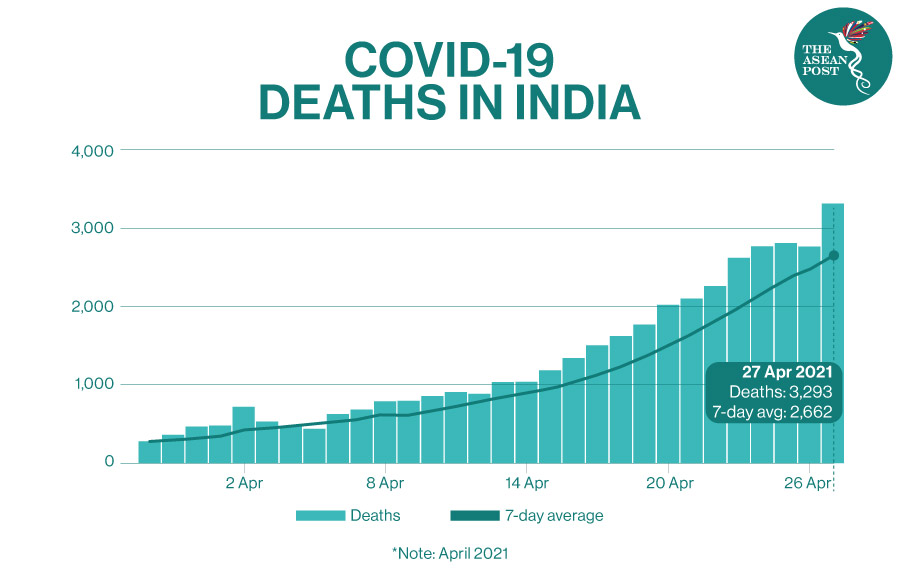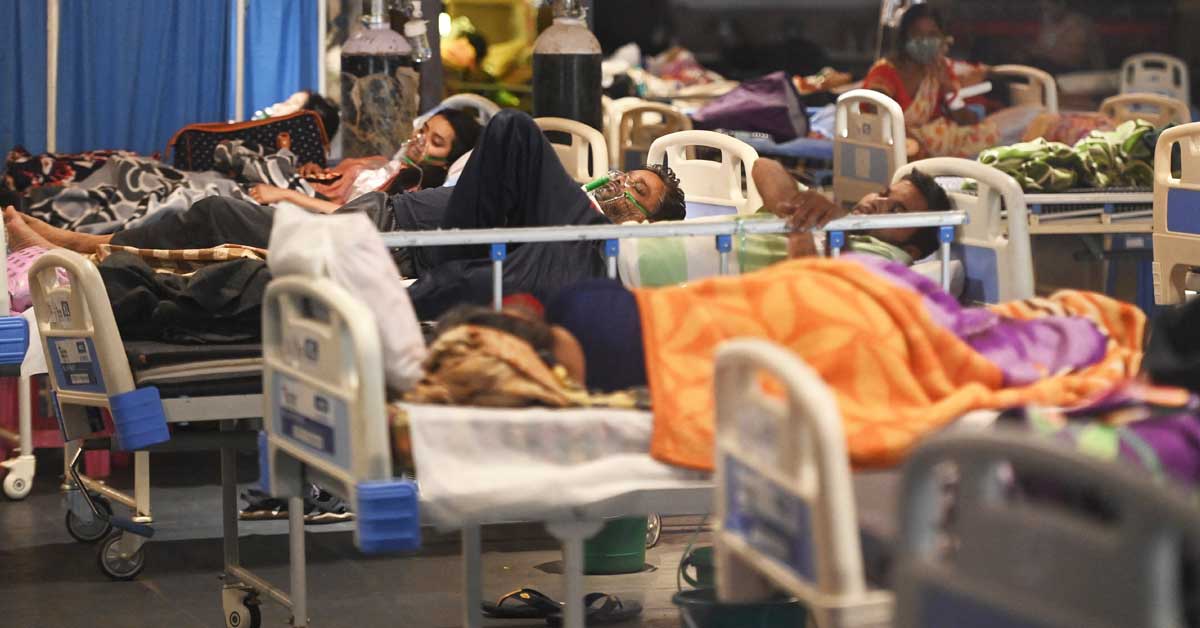Dr Anthony Fauci, the White House’s chief medical adviser, has said countries have failed to unite to provide an adequate global response to prevent the “tragic” coronavirus outbreak from overwhelming India, and singled out wealthier nations for failing to provide equitable access to healthcare around the world.
Fauci said the situation in India had highlighted global inequality.
“The only way that you’re going to adequately respond to a global pandemic is by having a global response, and a global response means equity throughout the world,” Fauci said.
“And that’s something that, unfortunately, has not been accomplished. Often when you have diseases in which there is a limited amount of intervention, be it therapeutic or prevention, this is something that all the countries that are relatively rich countries or countries that have a higher income have to pay more attention to.”
India recorded 360,960 new cases in the 24 hours to Wednesday morning according to health ministry data, another new daily global record. The ministry also said that India’s total number of fatalities had passed 200,000 to stand at 201,187.
The latest epidemiological update from the World Health Organization (WHO) issued on Tuesday said COVID-19 cases increased globally for the ninth consecutive week, with nearly 5.7 million new cases reported. India accounts for the majority of cases, with 2,172,063 new cases reported in the past week – a 52 percent increase.
Fauci said while the WHO was trying to accelerate support to India through the COVAX initiative – a global program aimed at ensuring countries most in need get access to vaccines and other treatments – “we have to do even more than that”.
“The United States (US) has really revved up their activity in helping out India … we’re sending oxygen, remdesivir, personal protective equipment (PPE), a variety of other medications and soon we’ll be sending vaccine to help out,” he said.
“So, I think that that’s a responsibility that the rich countries need to assume. Right now, it’s a terrible tragic situation where people are dying because there’s not enough oxygen, where there’s not enough hospital beds. We have to try, looking forward, to get as much equity when it comes to public health issues as we possibly can.
“Because we’re all in this together. It’s an interconnected world. And there are responsibilities that countries have to each other, particularly if you’re a wealthy country and you’re dealing with countries that don’t have the resources or capabilities that you have.”
Looking ahead, health systems globally would need to be upgraded so that issues emerging could be detected sooner, Fauci said. Transparency and communication between countries would be key, he said, adding that this was not just an issue for countries like India but for the US as well.
“You want to have the capability of better surveillance internationally, so that when something comes up and emerges in a given country there’s not a big delay in getting recognition of what’s going on,” he said.
“I know in the United States, for example, our local public health system has not been kept up to the level that we would have liked … we are still using fax machines, which is really unacceptable. You have to be prepared to have interconnectivity.”

As the tragedy unfolds in India, he said some richer countries should feel grateful that they had two safe and effective vaccines in AstraZeneca and Pfizer, even if the rollout of those vaccines had been slower than anticipated. “Just because you have only two vaccines that are available, that doesn’t necessarily mean you’re at a disadvantage, so long as you have enough efficacious and safe vaccine,” he said. “I don’t think the numbers of [different types of] vaccines in the sense of different vaccines is as important as getting enough for your citizens.”
Asked whether the situation in India and elsewhere, such as in Papua New Guinea, meant the world would struggle to ever contain COVID, Fauci responded: “I believe we will get there.
“But it makes it more difficult when you have the spread of infection in a country that’s not handling it very well. If you get infections in a country in which there are a lot of immunosuppressed individuals, including people who are infected with HIV and the virus infects them, they don’t clear it as rapidly as you would hope and that gives the virus a chance to mutate, which leads to the development of additional variants.”
Fauci said the evolving situation meant he “can’t even begin to think” of a life and career beyond responding to the pandemic. While the rapid pace of the vaccination program in the US has seen a reduction of new infections, there were nonetheless 406,000 new cases reported in the US in the past week – a 15 percent decrease from the week prior.
“This is such an important and challenging situation we’re dealing with right now,” Fauci said. “I’m devoting all of my attention, all of my energy, 24/7, on trying to get control of this terrible outbreak that we’re experiencing, not only here in the United States, but throughout the world.” – The Guardian
Related Articles:
